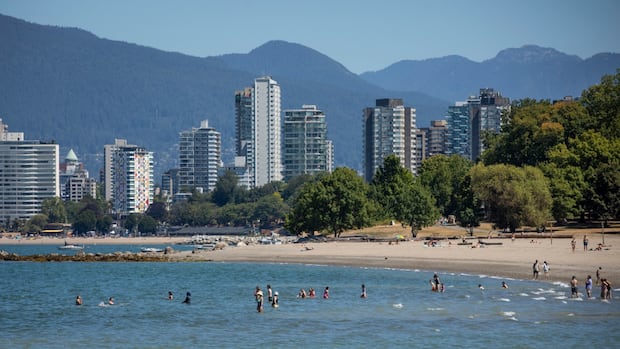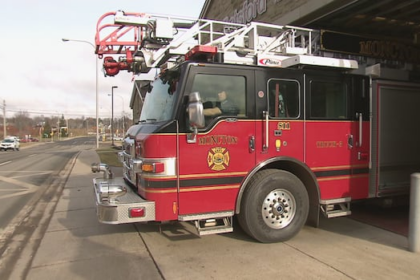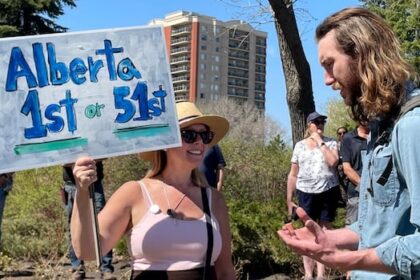British ColumbiaA report commissioned by Airbnb estimates Vancouver will have an accommodation shortfall of about 70,000 nights while it plays host to some of the 2026 World Cup matches.Deloitte report commissioned by Airbnb estimates 70,000 night shortfall for 7 matchesBrieanna Charlebois · The Canadian Press · Posted: Oct 02, 2025 11:12 AM EDT | Last Updated: 8 hours agoA report by Deloitte, commissioned by Airbnb, says there will be a lack of accommodation in Vancouver for the upcoming 2026 FIFA World Cup. Vancouver’s B.C. Place will host seven games. (Ben Nelms/CBC)A new report that forecasts a significant lodging shortage in Vancouver next summer during the 2026 World Cup games is being used as a pitch by Airbnb for governments to loosen regulations on short-term rentals. The FIFA World Cup kicks off on June 11, 2026, and Toronto and Vancouver are the two Canadian cities hosting matches, as part of the 16 host cities across Canada, the U.S. and Mexico.But both the province and the City of Vancouver have regulations for short-term rentals, including rules on what types of homes can be used. In Vancouver, all operators must also have a business licence.”We’ve been hearing for months and months that Vancouver is going to be short accommodation options and face a major crunch during FIFA 2026, and this new report from Deloitte confirms that,” Alex Howell, policy lead at Airbnb Canada, said in an interview.The report by Deloitte was commissioned by Airbnb and estimates a total accommodation capacity in hotels and short-term rentals will be around 41,800 during the FIFA World Cup for Metro Vancouver and 22,700 for the City of Vancouver.It said that amounts to a shortfall of about “70,000 nights” and not all visitors will be able to find a place to stay during the games. WATCH | Airbnb makes its case for Vancouver to relax short-term rental rules: Airbnb says Vancouver’s short-term rental rules should be eased during FIFA World CupAirbnb Canada’s Alex Howell is calling for the City of Vancouver to ease up on its short-term rental rules during next year’s FIFA World Cup games, to accommodate the hundreds of thousands of visitors expected to attend. That, the report said, translates into a direct spending loss of about $45 million for Metro Vancouver on expenditures including food, lodging, merchandise and other local services, which was calculated based on an average visitor spend of $639 per night.”The lodging gap represents a missed economic opportunity,” the report says.B.C. Premier David Eby said at an unrelated news conference on Wednesday that he understands there is a “huge demand” for short-term accommodation in the region.While he didn’t address the call to ease the regulations during the World Cup, he said people were welcome to rent out their own homes to create the room needed. B.C. Premier David Eby, centre, announces a memorandum of understanding regarding hosting FIFA World Cup 26 matches, on June 27. (Darryl Dyck/The Canadian Press)He said the province is also encouraging the city and its partners to fast-track permit approvals for hotels and will work with event organizers and the city to “accommodate people who are coming to visit.””What we can’t do is displace people who work and deliver services in Vancouver to support those activities,” he said.’We’ve struck a balance’: housing ministerHousing Minister Christine Boyle echoed Eby’s response in a statement, saying more than 23,000 active listings have registered with the province and are supplementing the hotel industry. “We believe we’ve struck a balance between the needs of people who live and work in B.C. — the people who enable major events and tourism — and people who are visiting our province,” she said in the statement. The City of Vancouver said it is “not currently considering changes to its short-term rental regulations for the duration of the FIFA World Cup 26 Vancouver.” “The city is also unable to override the province’s short-term rental regulations, which limits the extent to which it can ease its current policy.”The statement said Vancouver’s rules do not prevent residents from operating a short-term rental provided they follow the city and provincial regulations aimed at protecting long term housing. It said homeowners and tenants are both eligible to get an short-term rental licence.”Homeowners can rent their entire home or a room in it and tenants can also rent their home provided they have written approval from their landlord. The [short-term rental] must be the principal residence of the licence holder,” it said, noting that vacant laneway houses, basement suites and secondary suites are not eligible in Vancouver.B.C.’s tourism minister said in June that about 350,000 people are expected to visit Vancouver during the World Cup. A separate city report released in April said there are just 13,000 rooms spread across 78 hotels within the city.The Rosewood Hotel Georgia in Vancouver on Aug. 23, 2019. A city report from April said there are about 13,000 rooms spread across 78 hotels within Vancouver. (Maggie MacPherson/CBC)Vancouver’s report also found the city lost about 550 hotel rooms between 2020 and 2022, in part because some older hotels were converted to housing for vulnerable people. FIFA announced in August that the hosts of the group-stage matches will be drawn on Dec. 5. The city will stage five opening-round games starting June 13 at B.C. Place, plus a round-of-32 and a round-of-16 match.That is why, Howell said, Airbnb is now pushing for the change in short-term rental regulations. “What we’re basically saying to Vancouver and to the province right now is that this fall is going to be the crucial time for them to take action ahead of the big milestone event in December,” she said.Howell said they were “hearing a lot of concern around FIFA” accommodations after the B.C. government brought in new rules in May requiring hosts to register their short-term rental properties with the province. “We think both levels of government should reduce the fees and reduce the burden on hosts through that application process, just to make it a little bit easier, [to] make it so there aren’t quite so many hoops to jump through,” she said.Andy Yan, the city program director at Simon Fraser University, agreed there is a “sizable shortage” of visitor accommodation in Vancouver. “It is one of the key sectors in the city and the regional economy, and yet one of the key pillars of that economy seems to be challenged,” he said.A fan poses in front of an inflatable friendship bracelet before the Taylor Swift Eras Tour concert stop in Vancouver, on Friday, December 6, 2024. (Ethan Cairns/The Canadian Press)Yan said Airbnb may “see an opportunity and try to seize it” as the World Cup comes to the city, but it is “a lot more complicated than an on and off switch.”Howell said the Taylor Swift concerts in Vancouver last December provide a clear example of what the city can expect. The report says there was an estimated 260 per cent increase in hotel costs during Swift’s shows.The Deloitte report says its analysis shows possibly more than a 200 per cent increase for the cost for hotels during World Cup games.
World Cup lodging shortfall predicted in Vancouver as Airbnb pushes to loosen regulations












